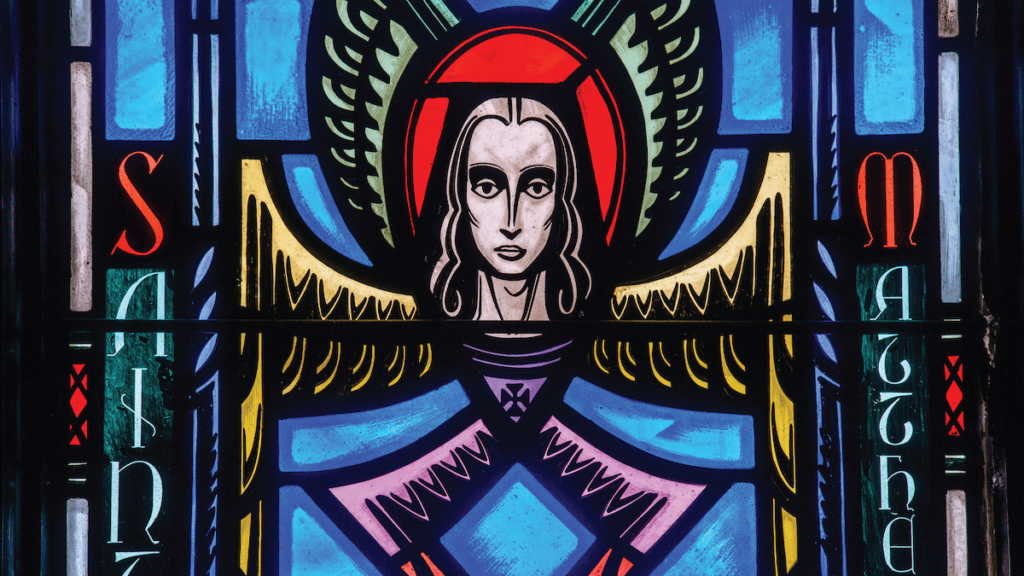by Rev. Dr. Mark Birkholz
Most people know that St. Valentine’s Day is on February 14 and St. Patrick’s Day is on March 17. But do you know what the date is for St. Matthew’s Day? Or St. Joseph’s Day? Most of the important people in the Bible, and many figures throughout the history of the church have specific dates for their celebration. Most often this is the date of their death. Which ones do Lutherans celebrate and why?
The celebration of Saints’ Days goes back to the second century.[1] As the church spread and grew, the list of saints and martyrs grew as well. Often people were most likely to commemorate saints associated with their particular region (e.g. St. Patrick in Ireland).
By Luther’s day, the list of Saints’ Days had become quite long. Most dates on the calendars had multiple saints associated with them. As the legends and lives of the saints took the place of the Gospel, the commemoration of the saints risked overshadowing the major holidays of the church year and the work of Christ. In his essay on Public Worship in 1523, Luther wrote,
All the festivals of the saints are to be discontinued. Where there is a good Christian legend, it may be inserted as an example after the Gospel on Sunday. The festivals of the Purification and Annunciation of Mary may be continued, and for the time being also her Assumption and Nativity, although the songs in them are not pure. The festival of John the Baptist is also pure. Not one of the legends of the apostles is pure, except St. Paul’s. They may either be transferred to the [closest] Sunday or celebrated separately, if one so desires.[2]
Later that year, Luther made similar remarks in his revision of the Latin Mass,
And if any desire to approve the introits (inasmuch as they have been taken from Psalms or other passages of Scripture) for apostles’ days, for feasts of the Virgin and of other saints, we do not condemn them. But we in Wittenberg intend to observe only the Lord’s days and the festivals of the Lord. We think that all the feasts of the saints should be abrogated, or if anything in them deserves it, it should be brought into the Sunday sermon. We regard the feasts of Purification and Annunciation as feasts of Christ, even as Epiphany and Circumcision. Instead of the feasts of St. Stephen and of St. John the Evangelist, we are pleased to use the office of the Nativity. . . . Let others act according to their own conscience or in consideration of the weakness of some—whatever the Spirit may suggest.[3]
The church calendar has varied from time to time and place, even among the Lutherans. In general, Lutherans kept the feasts associated with the life of Jesus. They also celebrated those saints from the Bible, particularly the New Testament: the apostles and evangelists, St. Stephen, Holy Innocents, St. John the Baptist, St. Michael the Archangel, and All Saints’ Day.[4]
Our current hymnal, the Lutheran Service Book, adds a few more feast days for Saints, including St. Barnabas, St. James of Jerusalem, St. Joseph, St. Mary, St. Mary Magdalene, St. Timothy, and St. Titus. The LSB also includes a listing of commemorations for Old Testament saints (e.g. Abraham, Samuel, Esther), and other saints from the history of the church (e.g. Polycarp, Lawrence, Anselm, Robert Barnes).[5]
So which days should we celebrate, and how do we best commemorate these saints?
We do not have strict rules governing which saints we must celebrate and which ones we cannot. Much of this is left to the discretion of the pastor of the congregation. In general, we don’t want to obscure the work of Christ or detract from the main message of the gospel. We certainly should not spend more time talking about the saints than we do about Jesus.
And when we do speak about the saints, the focus is still on Jesus. The Apology to the Augsburg Confession (XXI) mentions three particular ways that we remember the saints:
Thanksgiving– When we remember the blessing that these people have been to the church and the world, all thanks and glory goes to God alone.
Examples of Mercy– In the saints we see how God used sinners just like us as His servants. Moses, David, Peter, Paul and the rest were forgiven for their many failings, and that gives us hope, too.
Examples of Faithfulness– God gives us examples to follow through the faith shown by the saints and by their acts of service.
Even if we do not celebrate these Saints’ Days during the Sunday morning service, there are still ways to incorporate them into your life. You can remember the Saints’ Days as part of your daily devotions (the Treasury of Daily Prayer works well for this). Saints’ Days also work well for school chapel services, devotions at church meetings, and midweek services. A great new resource with history, meditations and prayers for these Saints’ Days is William Weedon’s Celebrating the Saints (St. Louis: Concordia, 2016).
The role of the Saints is never to distract or detract from the work of Christ, but to give examples where we can see Him at work through countless saints just like us who have served Him throughout the history of His church.
The Rev. Dr. Mark Birkholz is pastor of Faith Lutheran Church, Oak Lawn, Ill.
[1] James Brauer, “The Church Year” in Lutheran Worship: History and Practice (St. Louis: Concordia, 1993), 171.
[2] AE 53:14.
[3] AE 53:23.
[4] Brauer, “Church Year,” 171.
[5] Lutheran Service Book (St. Louis: Concordia, 2006), xi-xiii.

